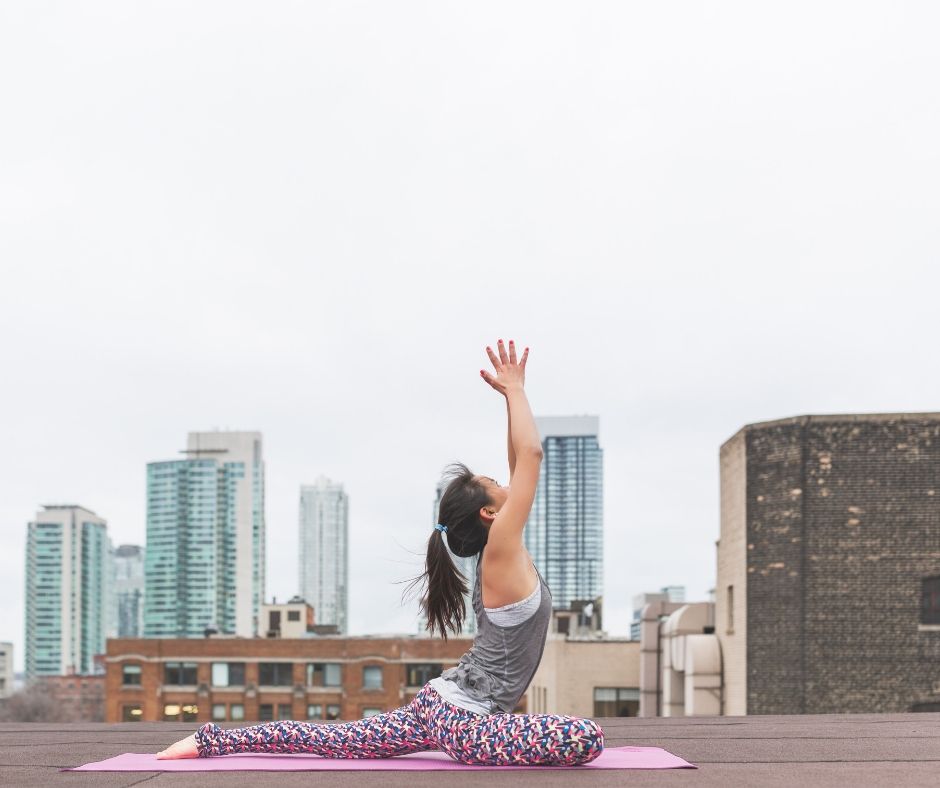 Hello, Imposter Syndrome
Hello, Imposter Syndrome
Imposter syndrome is a pattern of self-doubting thoughts and behavior, wherein you consistently view your accomplishments and opportunities as a fluke. You’re in constant fear that someone will out you for not being that talented, skilled, qualified, or informed.
In short, you believe you’re a fraud.
Any quick research on overcoming imposter syndrome will produce thousands of search results. There are enough books, empowerment conferences, webinars, and #motivationalmonday quotes to remind you that you’re a strong, capable woman who can accomplish the world.
But how do you truly “own your power?” Achieve “positive vibes only” and replace “what if” with “why the hell not?” No matter the quick tips, hacks, and mantras, there’s a disconnect between your behavior and affirmations. Your mind and body can’t seem to get on one accord.
For many years, this was my life’s cycle. I journaled, worked out, and surrounded myself with positive people. Despite my efforts, I continued to battle imposter syndrome. That was until I wandered onto a yoga mat.
Yoga is a system of physical, mental, emotional, and spiritual practices that were developed in India 5,000 years ago, to improve well-being in all areas of one’s life. The word yoga means “to yoke” or “to unite.” Yoga aligns your physical actions with your thoughts and feelings to heighten your self-awareness, self-regulation, and consciousness.
Since I’ve started my practice, yoga has helped me face my imposter syndrome, and I want to share what I’ve learned with you!
Below are 4 ways that yoga can help rid you of your imposter syndrome using only your breath, thoughts, and body.

Emphasizes Practice Over Perfection
The heart and soul of yoga is practice. Yoga, especially for a first-timer, can be a very humbling adventure. It will likely be the first time your body has bent in such poses since childhood. If you’re a perfectionist, you’ll strive for the perfect posture and alignment and frequently find yourself unbalanced and frustrated.
A desire to be perfect isn’t wrong, but it can be limiting. When you believe that everything must be perfect, you’re not free you to try new things and make mistakes.
Yoga puts your journey into perspective. You may not be able to reach your toes today, but you’d be surprised a the progress you’ll make in 30 days.
Each day you come to the mat, you accept where you are and bear witness to your growth.
Forces You to Face Your Fears & Failures
Your imposter syndrome feeds off fear, a fear that you will be exposed or that you’re not good enough, with each mistake validating your doubts.
Regular yoga practice reduces stress and anxiety by relaxing your physical body through postures, deep breathing, and meditation. It decreases your brain’s response to any perceived danger and thus, reduces your adrenaline and heart rate.
In yoga you come to accept your wobbles, maybe even expect them. Each mistake holds value and teaches you a little something about yourself at that moment. In turn, you retrain your brain to receive failure and not fear it.

Teaches You to Separate Fact From Feelings
Your feelings can be deceiving. It’s your feelings of inadequacy that convinced you that you’re an imposter despite your years of experience, accolades, and recommendations.
Yoga teaches you to work through your emotion with flows and sequences that challenge your physical and mental self. You’re forced to stop, listen, and decipher the origin of your emotion. Is it a fact, or is it feeling?
You discover how to accept your feelings not as wrong or right, and to not let them define you. For instance, feeling like an idiot doesn’t mean that you’re an idiot.
Provides a Space for Vulnerability
When you suffer from imposter syndrome, you build a wall between yourself and others, with just enough space to see out but not enough for others to see inside. You find comfort with very few people, furthering your internal belief that you’re a liar.
On the yoga mat, it’s just you; there’s no wall, no audience, or judgment. Each day you must accept and work with the version of you that shows up to practice. No matter your flaws and imperfections.
Yoga forces you to acknowledge your insecurities in the silence and stillness of your thoughts and movement. Most of all, you learn to trust yourself.
If you like this post, why not also read 10 reasons why yoga makes me a better mum or 17 powerful ways to build you confidence and self-esteem.
Bio
Whitney Stovall is a writer and consultant that helps business owners and brands elevate their content to reach their audience. Read more from her at www.whitneystovall.com.

 Hello, Imposter Syndrome
Hello, Imposter Syndrome






